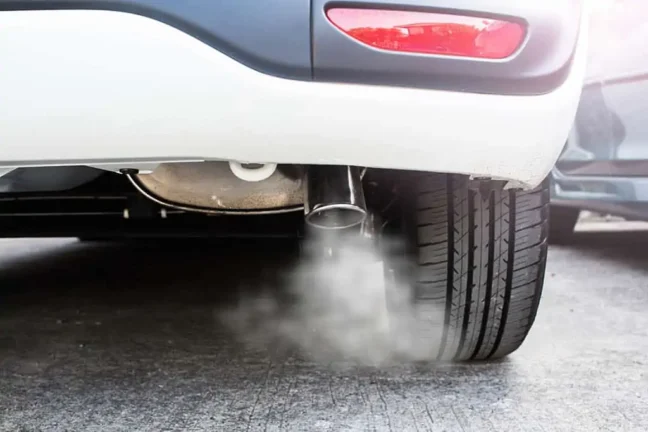The third Strategic Dialogue on the Future of the European Automotive Industry was held by Commission President Ursula von der Leyen on Friday, 12 September. The central topic of the meeting, attended by leading car manufacturer representatives, was the fate of the controversial ban on combustion engines.
According to the preliminary outcome from the meeting cited by Reuters, the Commission will move the review of its plan to ban the production of cars with combustion engines in 2035 to the end of this year. The review was originally planned for 2026. Some member states had previously called for the review to be brought forward.
Manufacturers: EU targets not achievable
Car makers have been warning for months that the EU’s targets for reducing carbon dioxide emissions from cars are no longer realistic and should be revised. That includes the plan to achieve zero emissions from passenger cars and vans by 2035.
“The European plan for the transformation of the automotive industry must go beyond idealism and acknowledge the current industrial and geopolitical reality. Meeting the strict emission targets for passenger cars and vans for 2030 and 2035 is simply not feasible in today’s world,” wrote the heads of the European Automobile Manufacturers’ Association (ACEA) and of the European Association of Automotive Suppliers (CLEPA) in a letter to Ms von der Leyen in August this year.
Technology neutrality, tailored policies needed
Sigrid de Vries, director general of ACEA, explained the industry’s position in several points. These include recalibration of the decarbonisation path so that Europe could safeguard industrial competitiveness, social cohesion, and strategic resilience of its supply chains.
Battery vehicles dominate the transition, but they can not meet every transport need. — Sigrid de Vries, director general of European Automobile Manufacturers’ Association
Another important point, according to Ms de Vries, is technology neutrality. While battery vehicles would dominate the transition, they can not meet every transport need, the ACEA chief suggests. Plug-in hybrids, hydrogen fuel cells, renewable-fuel internal combustion engines, and other solutions must remain vital.
European policymakers have rightly focused on building a homegrown battery industry, Ms de Vries acknowledges. The automotive sector warns, however, that this process will take time.
You might be interested
The ACEA director is calling for “three separate lanes” and tailored policies for different vehicle types: passenger cars, vans, and heavy-duty vehicles. The market situation for vans, with an electric share at 9 per cent only, is critical in her view.
Automotive as a key industry
European Commission spokesperson Anna-Kaisa Itkonen said on Friday that public consultations on the review started in July. “The consultations will continue until October 10,” she added, noting that further steps will follow, such as an assessment of the legislation’s impact.
Three years ago, the Commission, Parliament, and the Council agreed that new cars with combustion engines would no longer be sold in the EU from 2035. The agreement included a clause that the EU executive would review in 2026 whether the agreement in its current form is achievable. The review should take into account the market situation, development of new technologies, and economic impacts.
The automotive industry belongs to cornerstones of the European economy. The sector employs over 13 million people and contributes approximately 7 per cent to the EU’s GDP.
The European Commission launched the Strategic Dialogue with representatives of the automotuive sector in January 2025. Earlier dialogues took place on 30 January and on 3 March 2025.











